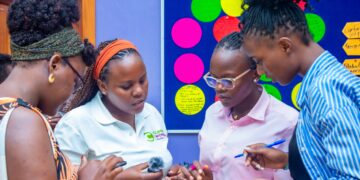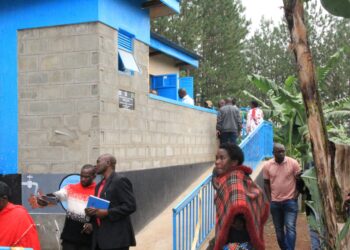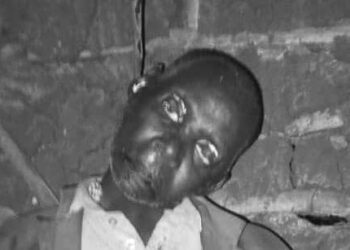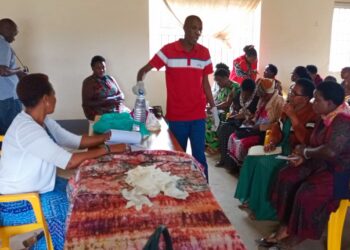JINJA CITY
The Korea Foundation for International Healthcare (KOFIH) has unveiled an artificial intelligence–driven digital education tool aimed at strengthening health awareness and hygiene practices in Uganda’s Busoga sub-region.
The KO-Z1-EduON platform, which uses AI to deliver scalable digital learning on sanitation and hygiene, will be officially launched on Tuesday, August 26, during a commissioning and groundbreaking ceremony for new WASH facilities in Jinja and Iganga.
KOFIH officials said the platform is designed to “strengthen hygiene literacy and drive sustainable behaviour change,” particularly among school children and communities vulnerable to waterborne diseases.
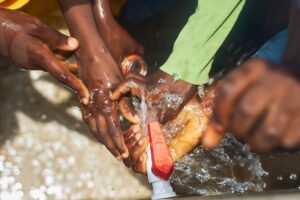 The launch forms part of the KOFIH/Office of the Prime Minister (OPM) Busoga WASH Project on Waterborne Disease Reduction and Prevention, a two-year initiative running from January 2025 to December 2026. The project seeks to reduce the prevalence of diseases such as cholera, typhoid, and diarrhoea in the region.
The launch forms part of the KOFIH/Office of the Prime Minister (OPM) Busoga WASH Project on Waterborne Disease Reduction and Prevention, a two-year initiative running from January 2025 to December 2026. The project seeks to reduce the prevalence of diseases such as cholera, typhoid, and diarrhoea in the region.
The new digital intervention comes on the back of a baseline survey and early infrastructure roll-out, including three handwashing stations and three water purification filters installed in Jinja City and Iganga District. Between August 24 and 27, KOFIH will also break ground for new toilet facilities at Bunyirro Primary School and a community water tank system at Bulubandi A Central Village.
“Our goal is not just to build infrastructure but to change behaviours and transform lives,” said S. H. Jung, Senior Advisor and Program Health Specialist at KOFIH Uganda. “WASH is a foundation for dignity, health, and education.”
The project adopts a multi-sectoral approach, working with the Ministry of Water and Environment, the National Water and Sewerage Corporation, district governments, and community stakeholders. The KOFIH Uganda Office, which recently gained international organization and diplomatic mission status, is coordinating the initiative.
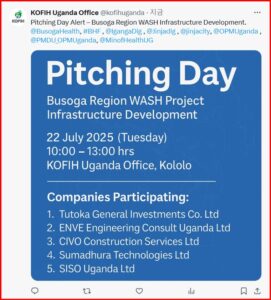 Beyond infrastructure, the programme includes WASH awareness campaigns, capacity-building for health workers and community leaders, and policy dialogue to align with Uganda’s National Development Plan and Sustainable Development Goal (SDG) 6 on clean water and sanitation.
Beyond infrastructure, the programme includes WASH awareness campaigns, capacity-building for health workers and community leaders, and policy dialogue to align with Uganda’s National Development Plan and Sustainable Development Goal (SDG) 6 on clean water and sanitation.
According to KOFIH Assistant Project Manager Gabriel Ssekitoleko, the strategic interventions aim not only to improve local health outcomes but also to provide data to inform national policy.
“By directly engaging communities, advancing digital education, and strengthening institutional capacity, we hope to drive lasting hygiene behaviour change, particularly in handwashing, sanitation use, and safe water handling,” he said.















